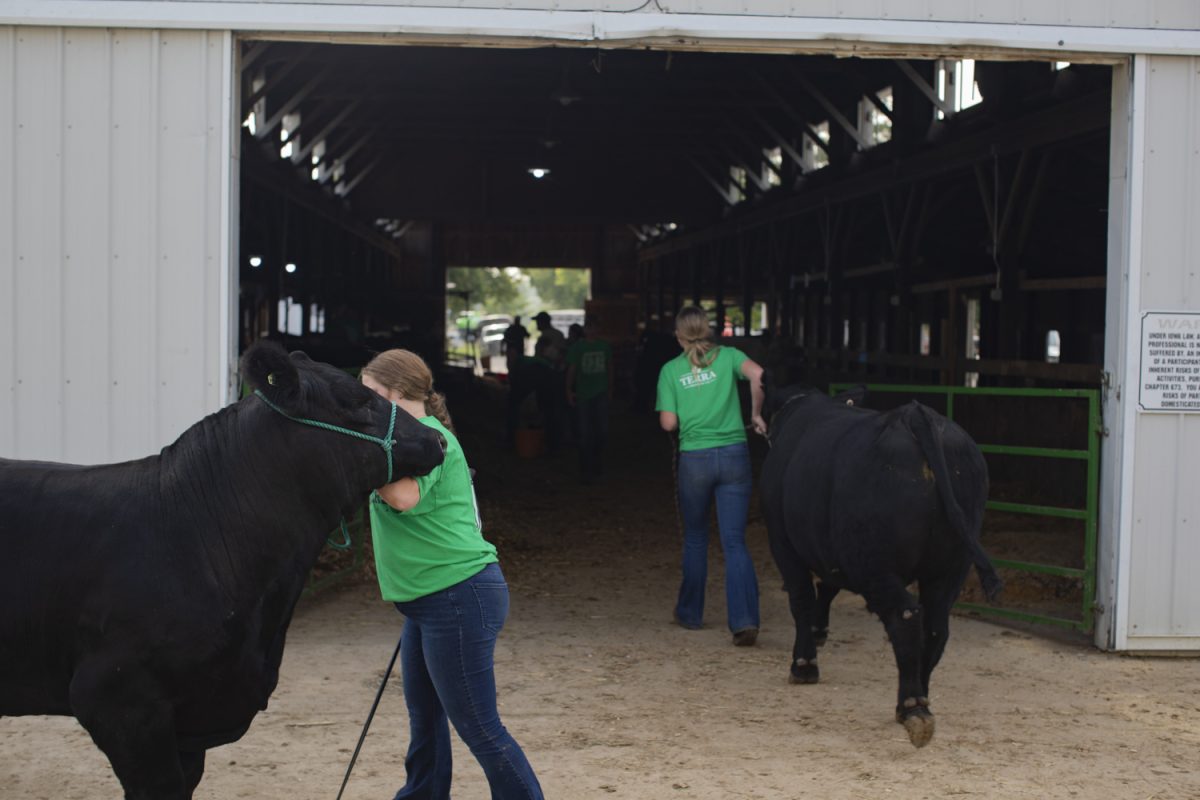Throughout Joseph Akol Makeer’s journey through the south Sudan desert, he witnessed atrocities that rivaled the gruesome events taking place in his home village of Duk Payuel.
As he tried to escape war-torn Sudan in the late 1980s with thousands of other boys, then 10-year-old Makeer once saw a lion tear a younger boy to pieces.
“He was telling us not to leave him there, but he didn’t realize that he was missing parts of his body,” Makeer said. “He died within a few minutes.”
Makeer spoke to a crowd of roughly 20 people Sunday night after the UI Center for Human Rights screened the documentary about his life, African Soul, American Heart, at the University Capitol Centre. He told the group about the hardships he endured after leaving his homeland that was transformed into a war zone.
Makeer and his fellow travelers, who are known as the Sudanese Lost Boys, fled the civil war that broke out between the northern and southern Sudanese in 1983. Many of the Lost Boys spent time in refugee camps, and around 4,000 came to the United States.
Their journey to get away from the conflict was rough, he said.
While attempting to evade predators, the boys also had to endure starvation. The children considered cannibalism over the course of their journey, Makeer said, and they had to resort to drinking their own urine and eating insects and clay soil.
Makeer spent 15 years in a refugee camp in Kakuma, Kenya. In 2003, the U.S. government and the Immigration and Naturalization Service helped him move to Fargo, N.D., where he helped start the African Soul, American Heart Foundation. The organization collects financial contributions to support Sudanese orphans in need and raises American awareness of the genocide still going on in Sudan.
Since the war began, roughly 2 million people have been killed and 4 million displaced, according to the Internal Displacement Monitoring Centre.
UI sophomore Alli Sambo, who attended the event, said Americans aren’t as aware of the problems in Sudan as they should be.
“It’s incredible that we haven’t done anything yet,” she said. “We need to be more global as American citizens.”
When Makeer last visited his hometown in 2007, he brought villagers a satellite dish to give them Internet access. But he said the dish hasn’t had much use because they are so poor.
“It’s not being used because there aren’t many people with computers,” Makeer said.
He said he hopes to go back home in December and is trying to raise $150,000 to build an orphanage for kids who have lost their parents in the war. He has been raising funds by telling his story in Iowa, Minnesota, South Dakota, and Canada.
When he goes home next, he said, he will take engineers and architects with him and will buy building materials for the orphanage’s infrastructure he plans to build in either Uganda or Kenya.
“We want to house about 50 girls and 50 boys who are pretty much on their own right now,” he said.






